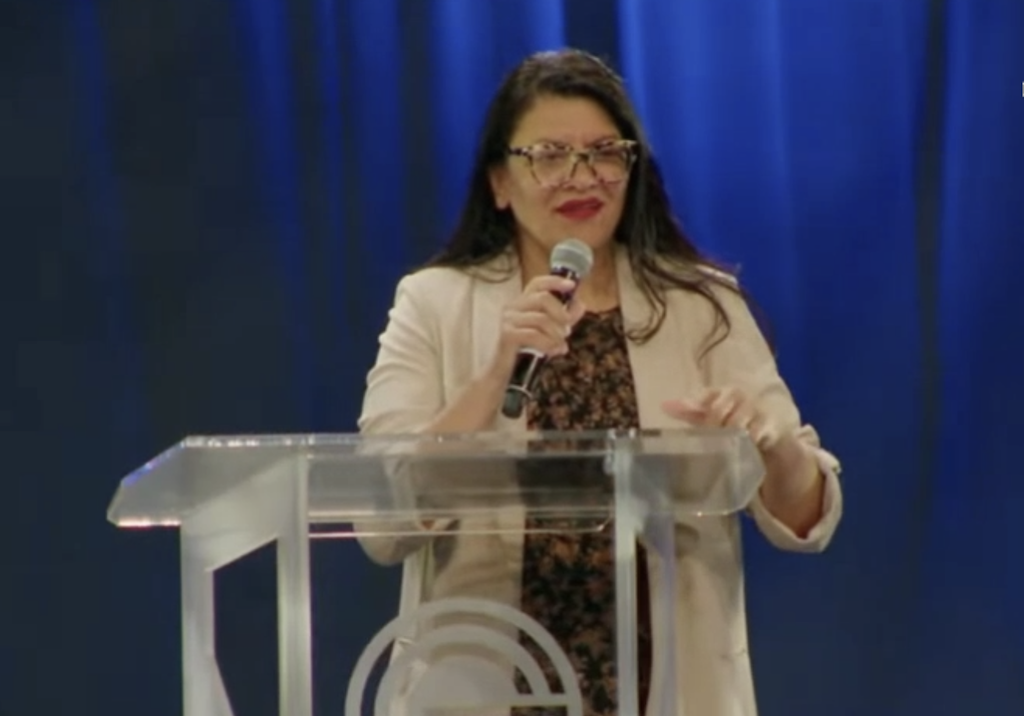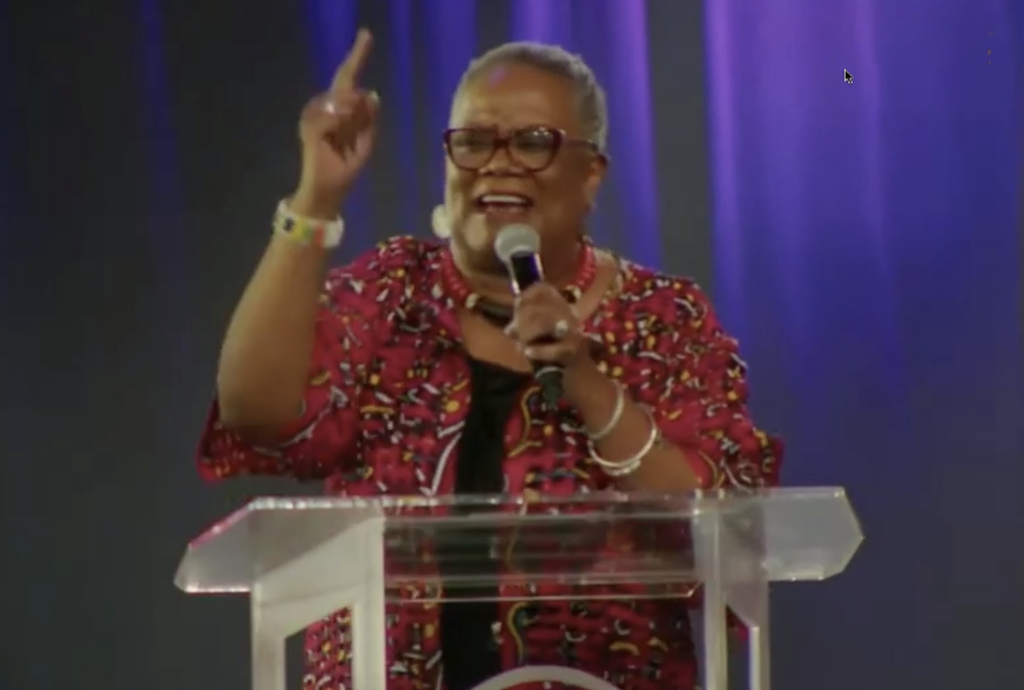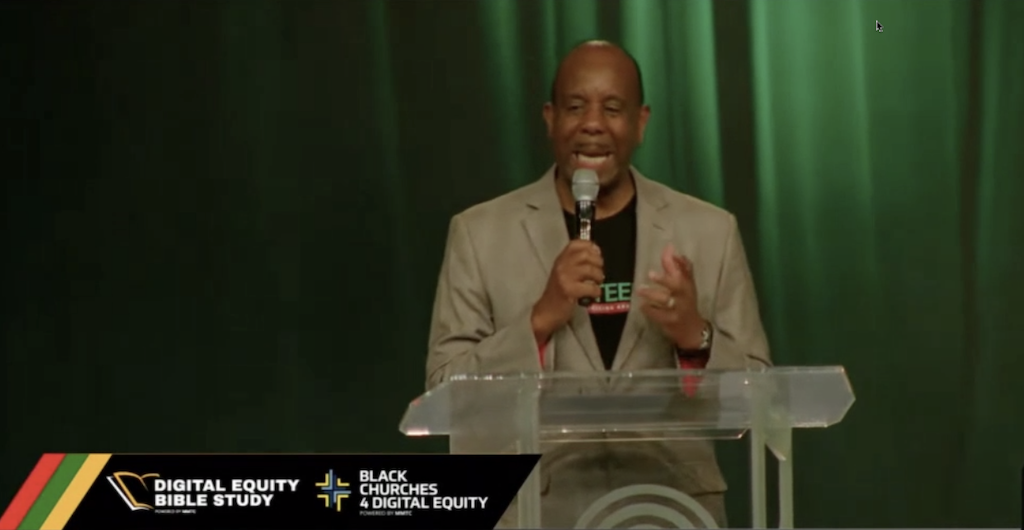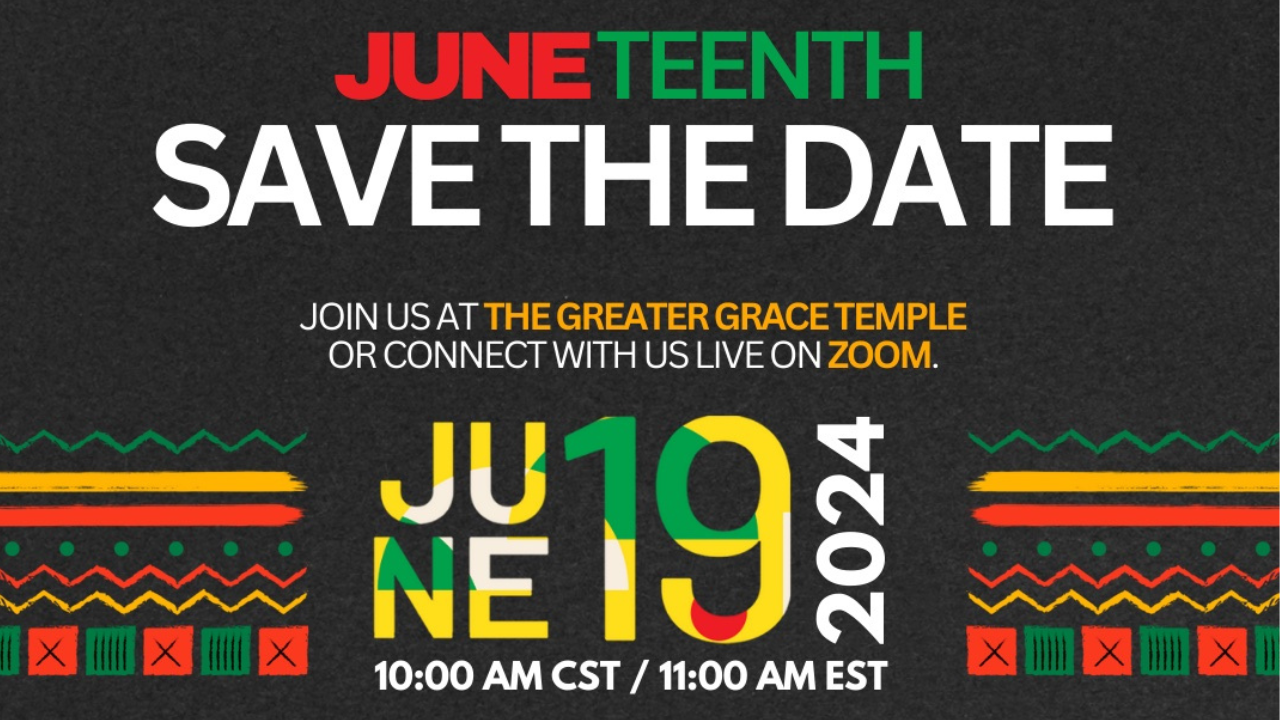Black Pastors Praise Tinkering, Rally for Digital Equity
On Juneteenth, Rep. Rashida Tlaib scored loss of ACP, but praised potential open access network in Detroit.
Drew Clark

DETROIT, June 19, 2024 – Digital equity means more than access to high-speed internet, but requires familiarity with skills to adapt and thrive in a modern, digital age, preachers preached and speakers spoke here Wednesday.
At the inaugural digital equity bible study here on Juneteenth, the federal holiday celebrating the end of slavery in the United States, Rev. Dr. Renita Weems, co-pastor of the Ray of Hope Community Church in Nashville, Tenn., delivered a rousing sermon on the virtues of "tinkering."
Also speaking live at the in-person event was Rep. Rashida Tlaib, D-Michigan, who blasted Congressional leaders for letting the Affordable Connectivity Program lapse. But Tlaib praised a potential municipal open access network in Detroit, the community she serves as a member of Congress.
Virtues of tinkering as a digital skill
Weems compared people struggle to adapt to the digital age with the tinkerers of prior generations, including her father and others of her African-American ancestors.
These tinkerers made do, improved upon, and excelled in their use of mechanical and electrical technologies, she said.

As a preacher, Weems acknowledged her own technical challenges. She put a Biblical and Juneteenth frame on the struggle for digital equity by comparing the current moment to the role of Nehamiah, the Biblical prophet who supervised the rebuilding of Jerusalem in the mid-5th Century BC, after the Jews were released from the captivity of the Persian kings.
"It was during the pandemic that we had to stay in touch with our family members" though FaceTime and other video calling applications, Weems said.
That was a challenge "for those of us who are not [digital] natives," referring to younger technology users more adept at internet connectivity.
Here is her own explanation for why Black churches need to be involved in the struggle for digital equity:
“You have to be connected in order to get the services that are available. In the communities, the conversations that are going, the jobs, knowing about your finance, getting the health information you need and I want to enter into that area right now because I think that we tend to think of the broadband issue and why Black churches ought to be advocates and involved and invested because we’re online and we want our people to have access to us.”
Rep. Tlaib praises possible open access network in Detroit
Tlaib, the member of Congress speaking from the city, adopted a tone that was both defiant and triumphal.
Noting the theme of Juneteenth, she said, "We are not liberated until we break down policies that are keeping our communities held back," including policies bearing upon utilities like water and telecommunications.
She said that "half a million households [in Detroit] lack access to affordable, reliable internet access," and that "in my own district, 130,00 residents" received a total of $70 million in funds from the ACP.
"That the House and Senate leadership allowed it to expire is a shame," she said, because "access to the internet is not a luxury, it is a necessity." Tlaib is one of many co-sponsors of the still-lingering ACP Extension Act.
She was much more enthused about a potential city-owned open access network shepherded by the Detroit Office of Digital Equity and Inclusion.

Tlaib cited a 2018 survey by Harvard demonstrating lower costs and greater price transparency by city-owned municipal broadband networks. She said that municipal network promote self-determination.
"Community owned networks," she said, will provide "democratic control over basic infrastructure."
Gaps in equitable access to broadband for Black communities
The Black Churches 4 Digital Equity (BC4DE) group also released the Digital Equity Bible Study Toolkit, showing that digital disparities remain stark. Only 71% of Black adults have home broadband, compared to 80% of White adults. Just 69% of Black households own a computer.
The gaps are even wider in some states:
- In Alabama, 17% lack any internet access. In rural Wilcox County, 55% have little to no broadband.
- In Georgia, over 200,000 households are unserved by broadband, 90% in rural areas. Six in ten can't afford broadband under $60/month.
- 23% of racial minorities in Virginia lack home broadband - nearly 730,000 people.
- In Tennessee, 37% of residents have no internet. Six in ten can't access affordable broadband plans.
- 40% of New York City's low-income and minority neighborhoods lack broadband subscriptions.
- In New Jersey, broadband access ranges from 99% in wealthy counties to just 52% in less affluent areas.

The disparities perpetuate systemic inequities, the toolkit said. Half of Black workers have limited digital skills. Black Americans are 35% less likely to use telehealth. In the rural Black South, 49% of children live in poverty.
 digitalequitybiblestudy
digitalequitybiblestudy.png?format=1500w)
"You cannot live abundantly nor flourish as a human being, Black or otherwise, if you do not have connectivity," said Rev. William Lamar IV of DC's Metropolitan AME Church, in the toolkit. "We must mobilize so that Black people can participate, not be cut out of the digital economy."
The toolkit shared a Juneteenth liturgy, a Bible study, testimonies from pastors, and a roadmap for churches to assess their capacity and engage their communities.

"The fight for digital equity is intricately connected to the fight for recognition as a child of God," Dr. Fallon Wilson, vice president of policy for MMTC, said in the toolkit. She was also the curator of the BC4DE event, and a former student of Weems.
"Faith empowered actions for justice. We have a divine opportunity to embody faith and justice to create a technological society that uplifts, empowers and recognizes the richness of Black communities," said Wilson.
Broadband Breakfast was a Media Partner of the Inaugural Digital Equity Bible Study. The event was also livestreamed on Facebook.









Member discussion